With conflict-related deaths at a 26-year record high and more than 110 million people forcibly displaced worldwide at the end of June, 2023, the humanitarian system is overwhelmed. The Johns…
Daniel Maxwell
Henry J. Leir Professor in Food Security and Research Director
Director, Master of Arts in Humanitarian Assistance (MAHA) Program
Contact
Working with Feinstein since 2006
Based in Medford, MA
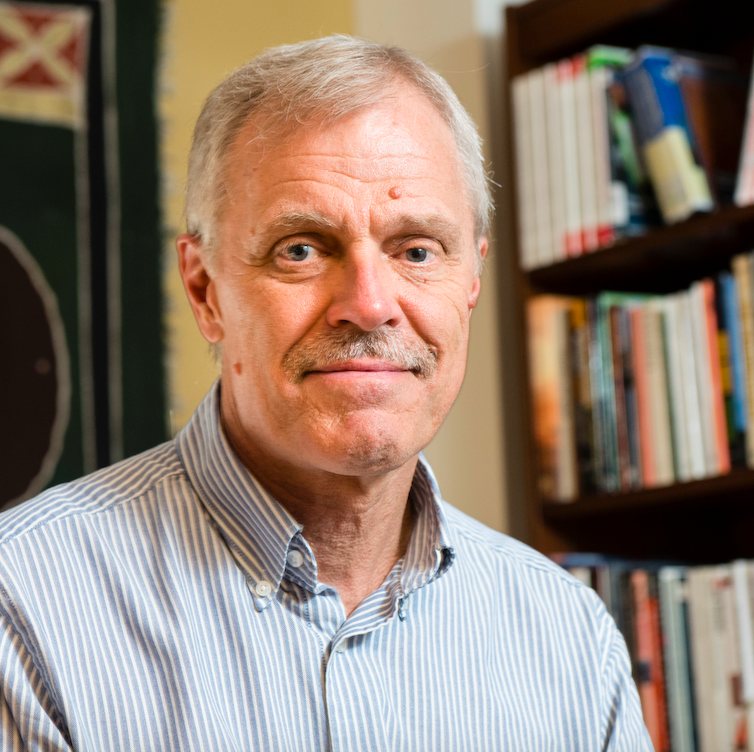
Daniel Maxwell is the Henry J. Leir Professor in Food Security at the Friedman School of Nutrition and Research Director at the Feinstein International Center. In 2016-2017, he served as the acting director of the Center. His recent research focuses on food security and the re-emergence of famines in the 21st century. He teaches courses on humanitarian action and humanitarian policy, as well as famine and food insecurity. He directs the Master of Arts in Humanitarian Assistance (MAHA) program at Tufts.
He is the author, with Kirsten Gelsdorf, of Understanding the Humanitarian World (Routledge, 2019). He is the author, with Nisar Majid, of Famine in Somalia: Competing Imperatives, Collective Failures (Oxford University Press, 2016). He is the co-author, with Chris Barrett of Cornell University, of Food Aid After Fifty Years: Recasting Its Role (Routledge, 2005).
Since 2014, Dan has been a member of the Famine Review Committee for the Integrated Food Security Phase Classification system—the formal mechanism by which contemporary famines are analyzed and declared. Prior to joining the faculty at Tufts, Dan worked for two decades for humanitarian agencies, mostly in Africa. His most recent position was Deputy Regional Director for Eastern and Central Africa for CARE International.
He holds a B.Sc. from Wilmington College, a master’s degree from Cornell University, and a Ph.D. from the University of Wisconsin.
RESEARCH INTERESTS
- Famine and acute humanitarian crises
- Humanitarian information systems and the politics of information and analysis
- Early warning and anticipatory action
- Emergency preparedness and contingency planning
- The “localization” of humanitarian action
- Resilience, livelihoods, food security, and food security measurement
- Livelihood systems under stress
- Humanitarian action and policy
REGIONAL FOCUS
- Sub-Saharan Africa
- Greater Horn of Africa
- North Africa/Middle East
COURSES TAUGHT
- NUTR 229/DHP D230: Humanitarian Action in Complex Emergencies
- NUTR 339/DHP D242: Famine, Livelihoods and Resilience
- NUTR 324/DHP D213 (Harvard GHP 515/518): International Humanitarian Response
- NUTR 223: Seminar in Humanitarian Issues
- NUTC 232: Food Security and Nutrition in Emergencies
- GMAP 216: Humanitarian Assistance
MOST CITED BOOKS & ARTICLES
- Maxwell, Daniel G. “Measuring Food Insecurity: the Frequency and Severity of ‘Coping Strategies.’” Food Policy 21, no. 3 (1996): 291–303. https://doi.org/10.1016/0306-9192(96)00005-x.
- Barrett, Christopher, and Daniel Maxwell. “Food Aid after Fifty Years: Recasting Its Role.” London: Routledge (2005).
- Maxwell, Daniel, Carol Levin, Margaret Armar-Klemesu, Marie Ruel, Saul Morris, and Clement Ahiadeke. “Urban Livelihoods and Food and Nutrition Security in Greater Accra, Ghana.” International Food Policy Research Institute 112 (2000). https://doi.org/10.2499/0896291154rr112.
- Maxwell, Daniel. “The Political Economy of Urban Food Security in Sub-Saharan Africa.” World Development 27, no. 11 (1999): 1939–53. https://doi.org/10.1016/s0305-750x(99)00101-1.
- Maxwell, Daniel G. “Alternative Food Security Strategy: A Household Analysis of Urban Agriculture in Kampala.” World Development 23, no. 10 (1995): 1669–81. https://doi.org/10.1016/0305-750x(95)00073-l.
MOST RECENT EXTERNAL PUBLICATIONS
- Maxwell, Daniel, Guhad Adan, Peter Hailey, Matthew Day, Stephen B.J. Odhiambo, Lilian Kaindi, James Njiru, Aishwarya Venkat, and Anastasia Marshak. “Using the Household Hunger Scale to Improve Analysis and Classification of Severe Food Insecurity in Famine-Risk Conditions: Evidence from Three Countries.” Food Policy 118 (July 2023): 102449. https://doi.org/10.1016/j.foodpol.2023.102449
- Lentz, Erin C., and Daniel Maxwell. 2022. “How Do Information Problems Constrain Anticipating, Mitigating, and Responding to Crises?” International Journal of Disaster Risk Reduction 81 (October): 103242. https://doi.org/10.1016/j.ijdrr.2022.103242.
- De Perez, Erin Coughlan, Kristoffer B. Berse, Lianne Angelico C. Depante, Evan Easton-Calabria, Elton Pierre R. Evidente, Theodore Ezike, Dorothy Heinrich, et al. 2022. “Learning From the Past in Moving to the Future: Invest in Communication and Response to Weather Early Warnings to Reduce Death and Damage.” Climate Risk Management 38 (January): 100461. https://doi.org/10.1016/j.crm.2022.100461.
- Sarkar, Aditya, Benjamin J. Spatz, Alex De Waal, Christopher Newton, and Daniel Maxwell. 2021. “The Political Marketplace Framework and Mass Starvation.” Journal of Humanitarian Affairs 3 (3): 43–55. https://doi.org/10.7227/jha.074.
- Fitzpatrick, Merry C, Anura V Kurpad, Christopher P Duggan, Shibani Ghosh, and Daniel G Maxwell. 2021. “Dietary Intake of Sulfur Amino Acids and Risk of Kwashiorkor Malnutrition in Eastern Democratic Republic of the Congo.” The American Journal of Clinical Nutrition 114 (3): 925–33. https://doi.org/10.1093/ajcn/nqab136.
RECENT NEWS
Scientists with the Famine Early Warning Systems Network (FEWS NET), including Erin Coughlan de Perez and Daniel Maxwell, have developed new advances in the predictability of East African rains that…
Dan Maxwell and colleagues including, Peter Hailey and Anastasia Marshak published “Using the household hunger scale to improve analysis and classification of severe food insecurity in famine-risk conditions: Evidence from…
Famine and food insecurity threaten the lives of nearly a billion people worldwide. And the number of people living in food insecurity is increasing. Why is there food insecurity and…
Dan Maxwell received the Mozaffarian Family Award for Public Impact in May 2023. This award is made annually to a Friedman School faculty member who has demonstrated exceptional public impact…
Each month, the Humanitarian and Conflict Response Institute (HCRI) at the University of Manchester pulls together recent important reports, peer-reviewed articles, and blog posts to create the Humanitarian Evidence and…
The situation in the Horn of Africa continued to worsen through 2022 and into 2023. The region has now experienced five below-average rainy seasons in a row—a drought of unprecedented…
The Foreign Policy Association’s Great Decisions is America’s largest discussion program on world affairs. The program model involves reading the Great Decisions Briefing Book, watching the DVD and meeting in…
Action Against Hunger’s Together Against Hunger Conference took place on October 12 and 13, 2022. This event connected doers, activists, philanthropists, and policymakers to reevaluate and reboot the fight against…
Dan Maxwell and Erin Lentz published their article, “How do information problems constrain anticipating, mitigating, and responding to crises?” in the International Journal of Disaster Risk Reduction Volume 81, 15…
The Integrated Food Security Phase Classification (IPC) Famine Review Committee was activated on August 5, 2022 by a request from the IPC Somalia Technical Working Group. The Committee was asked…
War in the Ukraine broke out in February 2022. Feinstein International Center faculty and researchers have been sharing what they know about the crisis and wider implications through a variety…
The situation in the Horn of Africa is continuing to worsen. According to The New Humanitarian, after “four droughts in a row, as many as 17 million people are going…
Starving civilians is an ancient military tactic, but today it’s a war crime in Ukraine, Yemen, Tigray and elsewhere Grain warehouse destroyed by Russian attacks in Kopyliv, Kyiv province, Ukraine,…
War in the Ukraine broke out in February 2022. Feinstein International Center faculty and researchers have been sharing what they know about the crisis and wider implications through a variety…
Dan Maxwell was quoted in the New York Times article “‘We Buried Him and Kept Walking’: Children Die as Somalis Flee Hunger” on June 12, 2022. The article describes how…
The situation in the Horn of Africa is continuing to worsen. According to The New Humanitarian, after “four droughts in a row, as many as 17 million people are going…
On May 12, 2022, The New Humanitarian provided a round up of the Humanitarian Networks and Partnership Week in their article “A tasting menu from Geneva’s humanitarian trade fair.” The…
War in Ukraine is pushing global acute hunger to the highest level in this century Distributing flour rations and other food supplies in southern Yemen on March 29, 2022. Saleh…
On January 21, 2022, Daniel Maxwell and Sabina Robillard presented findings from their recent study of the localization of humanitarian assistance to USAID’s Bureau of Humanitarian Assistance (BHA). More than…
Dan Maxwell teamed up with Nisar Majid and two other London School of Economics Research Associates to publish an opinion piece on Aljazeera on January 8, 2022. The authors implore…
On December 8, 2021, USAID announced a new partnership with seven universities around the world, including the Feinstein International Center at Tufts University. This alliance will build the evidence base…
Daniel Maxwell and Peter Hailey published a paper in the Journal of Humanitarian Affairs (JHA) titled, “Analyzing Famine: The Politics of Information and Analysis in Food Security Crises.” This paper synthesizes the…
Daniel Maxwell, Peter Hailey, and colleagues published an article in The New Humanitarian, which discuses how humanitarians must focus on the loss of death and urgently preventing it rather than…
On November 11th, 2020, Daniel Maxwell presented at the 10th Anniversary of the Global Food Security Cluster on the recurrence of famine in the 21st century. He discussed the factors…
Famine, COVID-19, and the Politics of Information and Analysis by: Anne Radday, Peter Hailey, and Daniel Maxwell “In war, truth is the first casualty.” Aeschylus Greek tragic dramatist (525 BC…
COVID-19 compromises social networks. What this means for people in humanitarian crises Iraqi, Iranian and Somali asylum seekers at a tent camp in the Netherlands. ROBIN UTRECHT/AFP/GettyImages Jeeyon Kim, Visiting…
Dan Maxwell and Peter Hailey published their article “Determining famine: Multi-dimensional analysis for the twenty-first century” in Food Policy. The article examines current methods of famine analysis and argues that…
In May 2019, Dan Maxwell and Kirsten Gelsdorf published their new book: Understanding the Humanitarian World. This book highlights the origins, growth, and specific challenges to, humanitarian action and examine why…
Jeeyon Janet Kim, Elizabeth Stites, Patrick Webb, Mark A. Constas, and Daniel Maxwell published “The effects of male out-migration on household food security in rural Nepal“ in Food Security in…
Dan Maxwell and Peter Hailey presented findings from their multi-country study “The Constraints and Complexities of Information Analysis” at the Annual SMART Global Conference (Standardized Methodology for Assessment in Relief…
Every three years, the Active Learning Network for Accountability and Performance (ALNAP) releases its flagship State of the Humanitarian System Report. They launched the 2018 report in December and included…
On Thursday, October 18 Dan Maxwell participated in a panel at the Friedman School of Nutrition, Science, and Policy’s 40th anniversary event. During the event Dan was asked…
Dan Maxwell served on an advisory committee led by Francesco Checchi for the London School of Hygiene & Tropical Medicine study released on September 26. The report, “South Sudan: Estimates…
On May 4, 2018, Daniel Maxwell, Dyan Mazurana, and Greg Gottlieb featured at the Tufts Return of Famine Symposium. The event covered four main topics: Why has famine returned? Challenges…
On March 28, 2018 Malnutrition Deeply published and article, “After Haiti, Rethinking How to Address Malnutrition in an Emergency.” This article relies heavily on work conducted by Helen Young, Anastasia…
Dan Maxwell and Peter Hailey published their article, “The Re-Emergence of Famine in the Twenty-first Century?” in Politorbis issue: the fight against famine: a myth of Sisyphus. The article discusses…
A March 8, 2018 Tufts Daily story by Laura Daily describes the ways in which the Master of Arts in Humanitarian Assistance program (MAHA) provides a mid-career boost to humanitarian…
IRIN contributor, Stephanie Glinski, writes in depth on the situation in South Sudan to provide a look at the steps involved in declaring and hopefully averting famine. In her piece,…
By Daniel Maxwell and Peter Hailey The international community now has a working definition of famine that enables real-time analysis and declaration of famines. The technical definition is based on…
In the January 30, 2018 edition of the Times Literary Supplement, The Fletcher School’s Alex de Waal reviewed Famine in Somalia by Daniel Maxwell and Nisar Majid among other books on…
In the Journal of African History Jonathan Benthall reviewed Daniel Maxwell and Nisar Majid‘s book Famine in Somalia: Competing Imperatives, Collective Failures, which was published in 2016. In the book, Dan and…
On October 11 the Journal of Intervention and Statebuilding published the Trajectories of International Engagement with State and Local Actors: Evidence from South Sudan article written by Feinstein’s Daniel Maxwell. Dan…
On September 18, 2017 Feinstein faculty and an alum were honored at the naming event of the Henry J. Leir Institute for Human Security. Fletcher Masters of Arts in Law…
On August 15, 2017, Gregory Gottlieb officially joined the Feinstein International Center as the director, as Daniel Maxwell stepped down as acting director and resumed his role as research director….
On July 12, 2017, Daniel Maxwell joined the International Food Policy Research Institute Panel on “Tackling Famine in the Twenty-first Century.” Video of his remarks is available here. The panel…
NPR’s monthly #CuriousGoat series answered reader questions about famine and hunger in June 2017. Daniel Maxwell was called upon to provide insight into the question: “What’s the difference between hunger…
Daniel Maxwell and Nisar Majid joined Andrew Seal, Peter Hailey, and Rob Bailey to publish an editorial in the BMJ on May 10, 2017. The editorial, “Famine, conflict, and political…
In an IRIN article on March 28, 2017, Daniel Maxwell joined colleagues to describe the dire situation in Somalia and what can be done about it. They write: Six years…
In light of the famine declaration in South Sudan and potential famine declarations in Somalia, Yemen, and Northern Nigeria, several news sources have cited Feinstein research. In IRIN’s March 30,…
FEINSTEIN PUBLICATIONS

This policy brief examines the relationship between famine declarations and funding since 2011. It shows that, with that one exception, there is little evidence that famine declarations actually result in a rapid increase in funding.
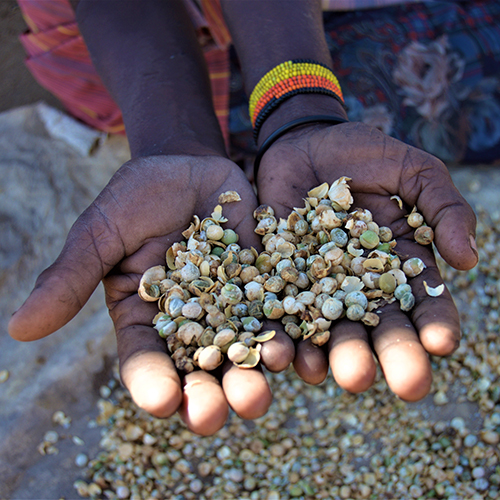
This study reviews what we have learned regarding policies and interventions to prevent famine, and how these can be scaled up more rapidly.
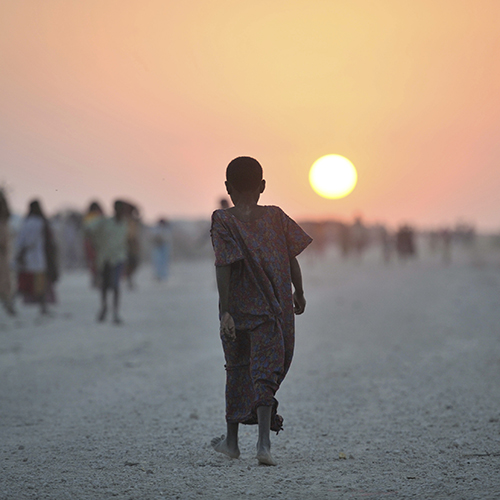
This report rings the alarm about likely famine in Somalia in 2022 by comparing the situation today with the situation before and during the famine in 2011.
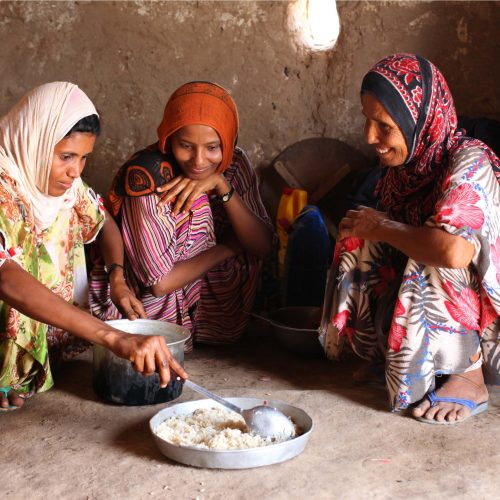
After more than seven years of conflict over 20 million Yemenis—66% of the population—are in need of assistance. Nonetheless, the humanitarian response in Yemen remains severely underfunded. This study examines the ways in which Yemenis have relied on their social networks to survive.

This landscape study about localization examined the literature and spoke to over five dozen key informants from different perspectives, positions, and countries across the humanitarian sector.
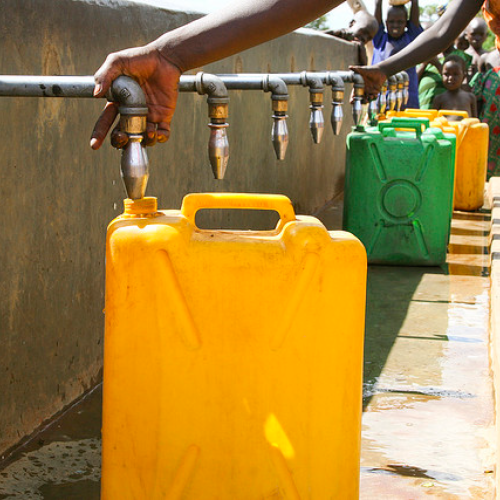
This report explores the nexus (small n), as a way of programming, and the HDP Nexus approach (capital N), as the approach promoted by the UN and OECD/DAC.
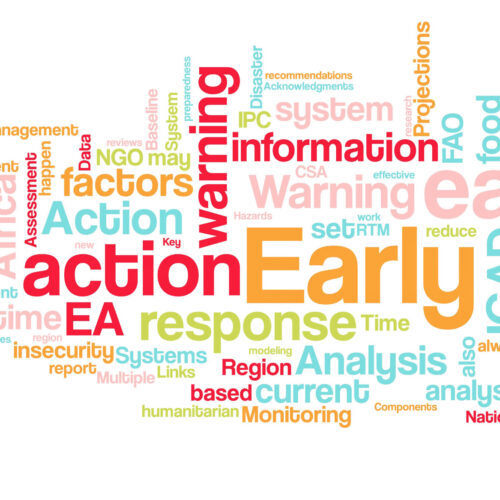
Multiple calls have been issued for better preparedness, early warning, and, above all, early action to prevent hunger and malnutrition, reduce the scale of food insecurity, improve resilience, and reduce…
This study examines the links between early warning and early action (EW-EA) in East Africa. The report deals specifically with new technology in predictive analytics and machine learning to enhance approaches to EW-EA.
This study examines the links between early warning and early action (EW-EA) in East Africa. The report describes existing regional and national EW-EA systems.
This study examines the links between early warning and early action in East Africa. The report provides the background to the study, a brief conceptual overview, the main findings of the study, and the recommendations to FAO and IGAD.
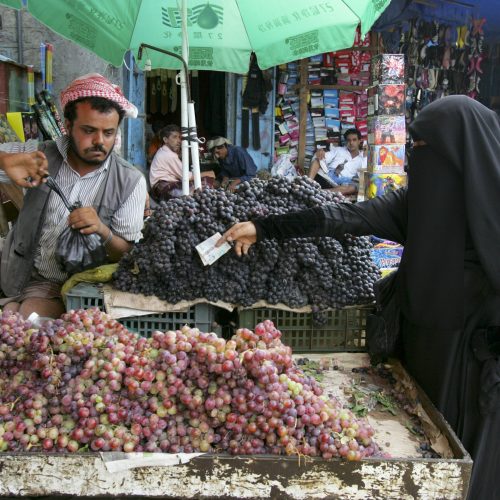
This brief report presents initial findings from a study investigating the role of social networks in Yemen’s humanitarian crisis.
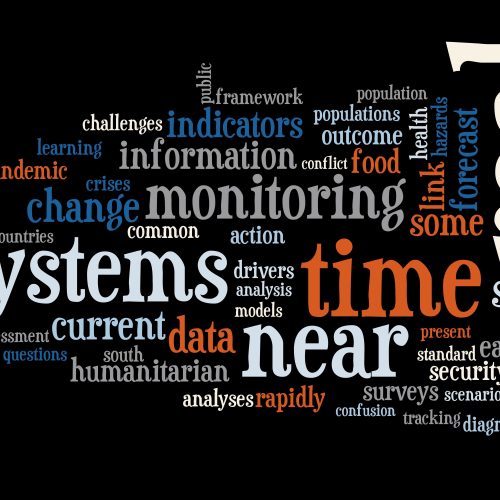
This paper reviews real-time monitoring (RTM), how it fits into a humanitarian information system, how systems quickly adjusted toward RTM in 2020, and provides a series of case studies of RTM systems, their objectives, and their outcomes.

The nature of humanitarian crises has changed over the past two decades. These changes demand increased anticipatory humanitarian action and improved information to guide that action. The COVID 19 pandemic…
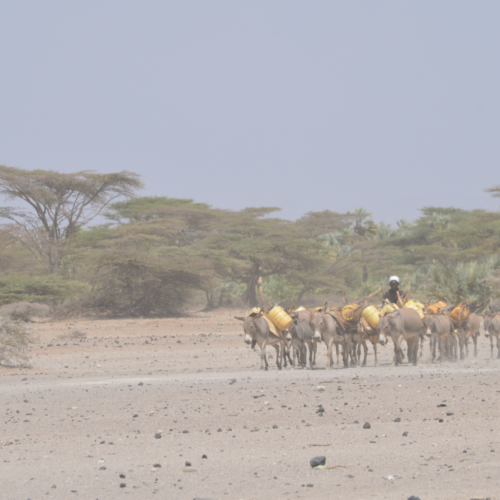
This study employed an active case identification approach to identifying the worst affected households in communities and make recommendations for how classification could be further improved.
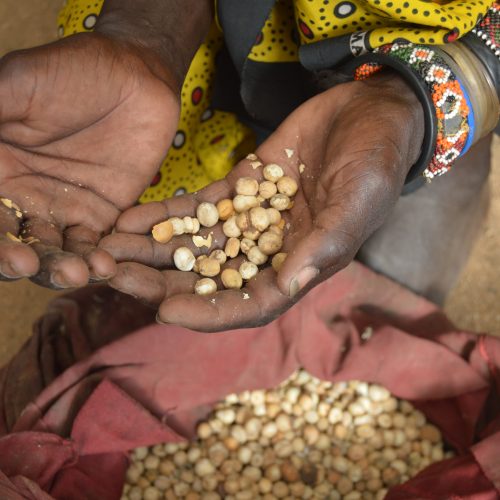
This is a brief on the full report of the study that synthesized findings from six different country case studies, noting influences on data collection and analysis processes during emergencies.
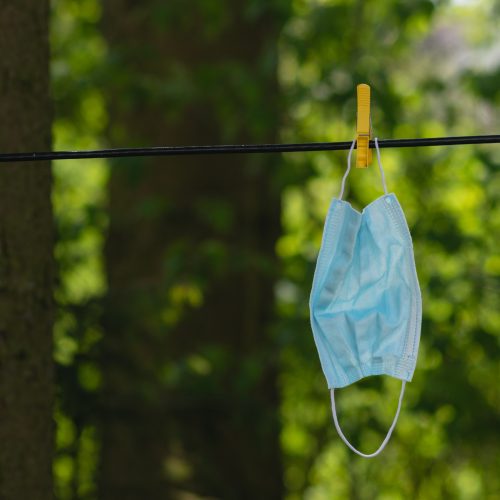
This brief lays out lessons from our study of famine information systems and considers how they may be applicable to the coronavirus pandemic response.
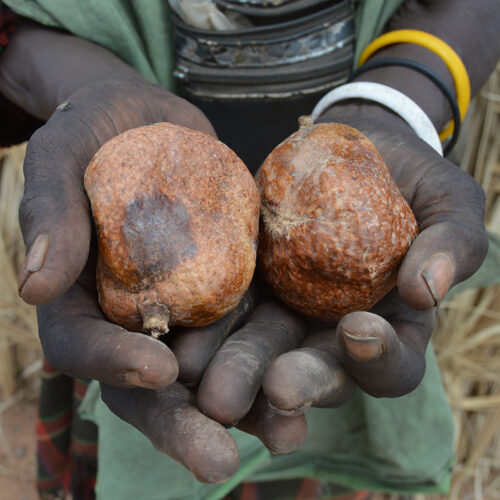
This study synthesized findings from six different country case studies, noting influences on data collection and analysis processes during emergencies.
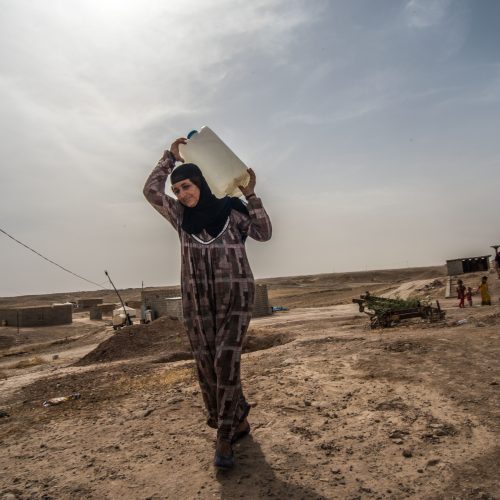
This study reviews fundamental questions about the humanitarian localization discussion in three contexts: a region of Haiti recovering from a hurricane, displacement and political crisis in Iraqi Kurdistan, and the pressures of migration, conflict, and climate change in Colombia.

Depi lontan, kritik sou èd imanitè entènasyonal yo sigjere li dwe pi enklizif pou aktè ki nan peyi kriz la touche. Yon atansyon ki pa sispann ogmante sou kesyon sa…

Por mucho tiempo, los críticos del sistemas humanitario internacional han llamado por una mayor inclusión de los actores y organizaciones locales en países afectados por diverso tipo de crisis con…
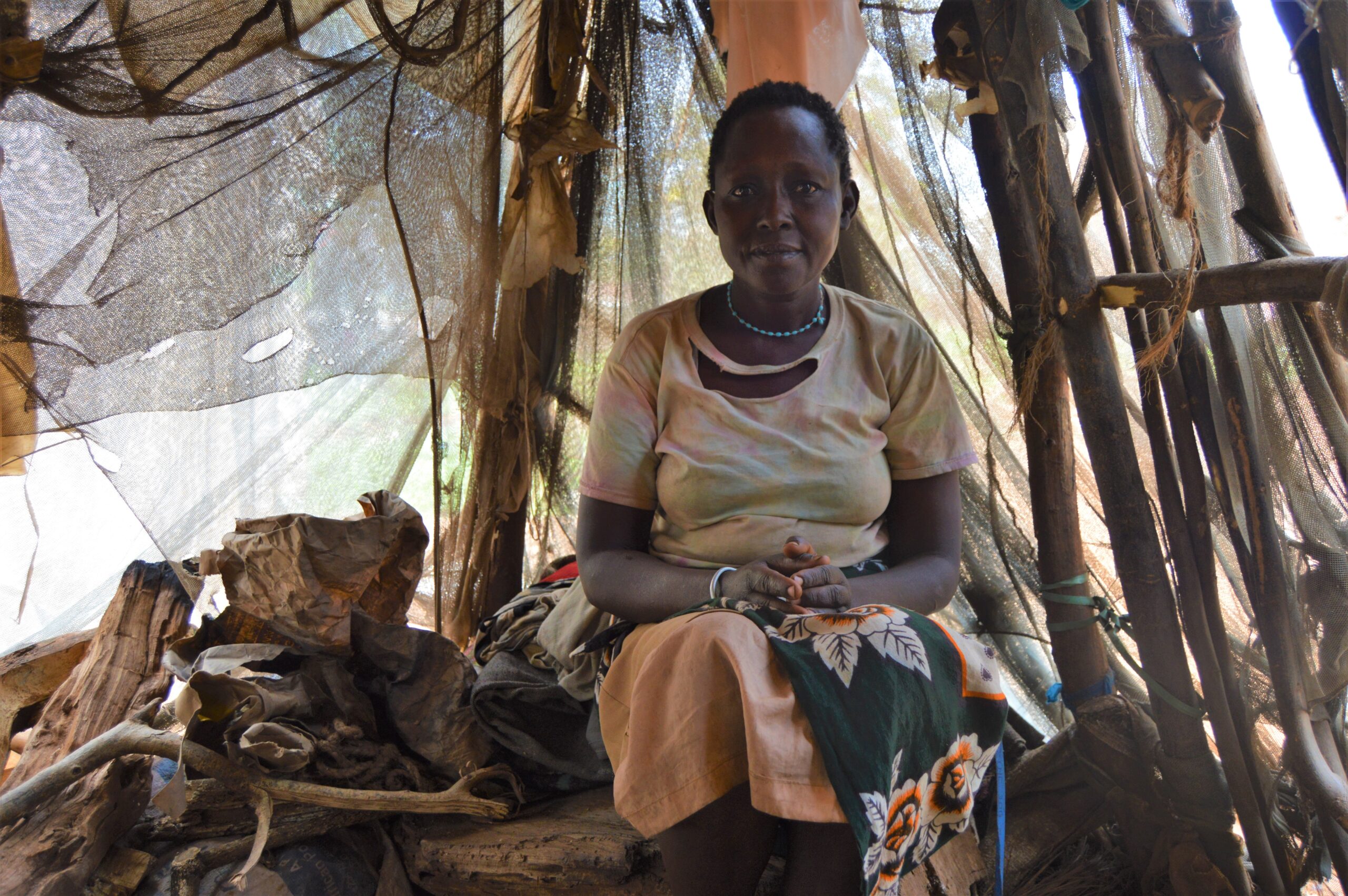
This report provides recommendations related to managing the political influences and improving the technical quality of the data and analysis in Kenya.
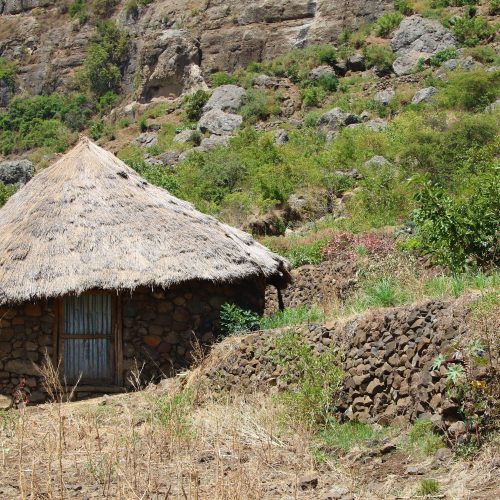
This study examines the politics of information and its influences on humanitarian information systems in Ethiopia today.
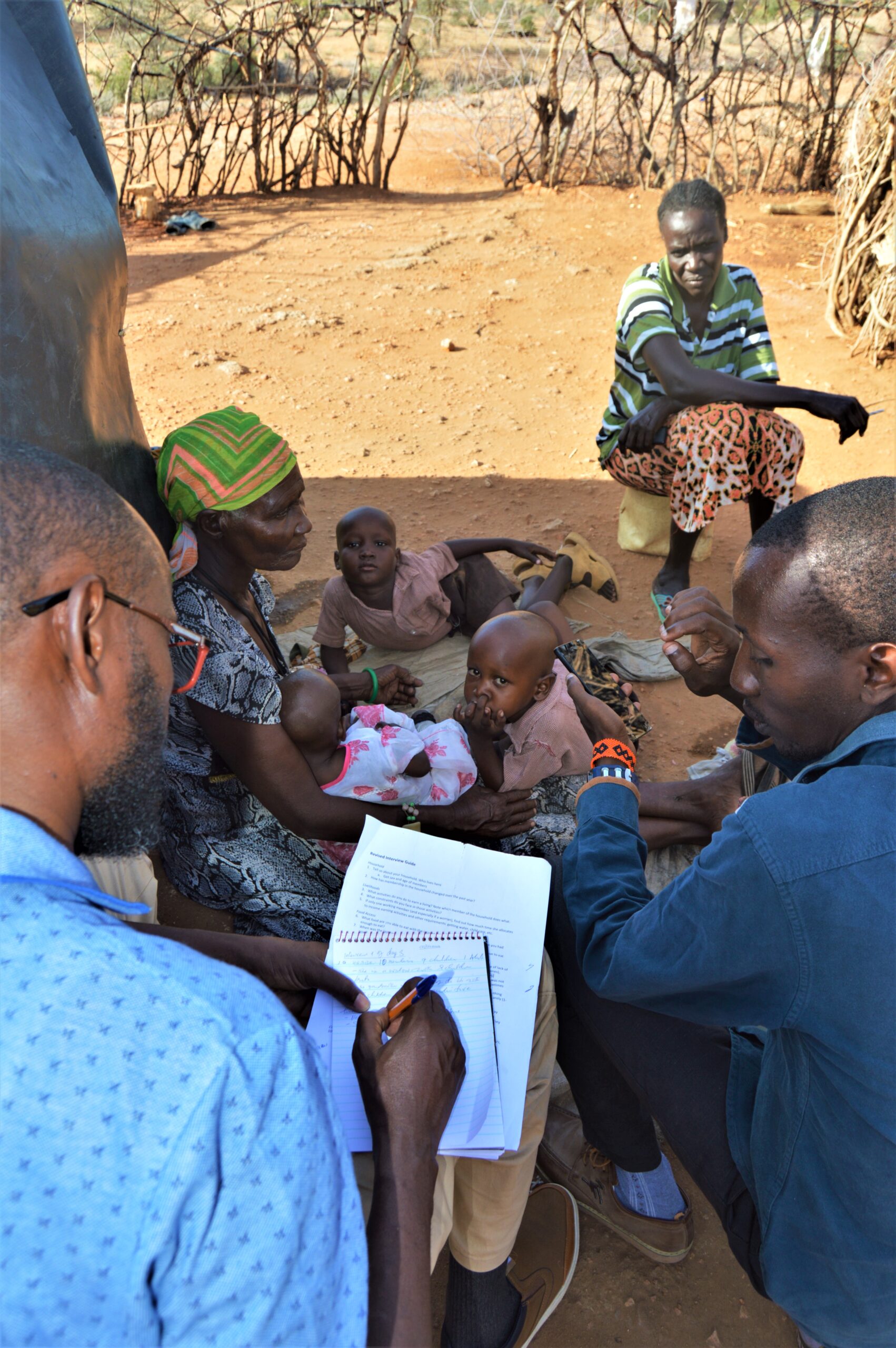
This paper reviews issues with contemporary humanitarian information and early warning systems. While the cases focus on the East Africa region, they have broader implications as well.
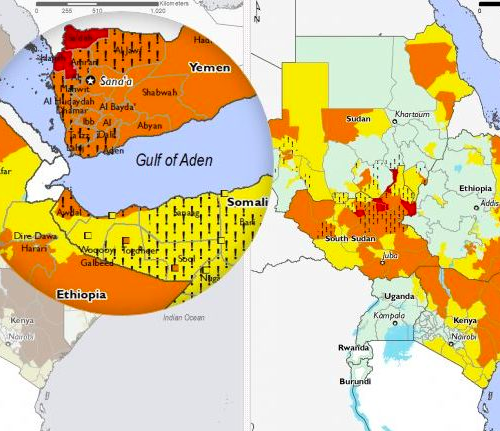
Attention to the growing number of people caught in crises characterized by extreme and often protracted levels of food insecurity, malnutrition, and mortality is increasing. The information systems that track…
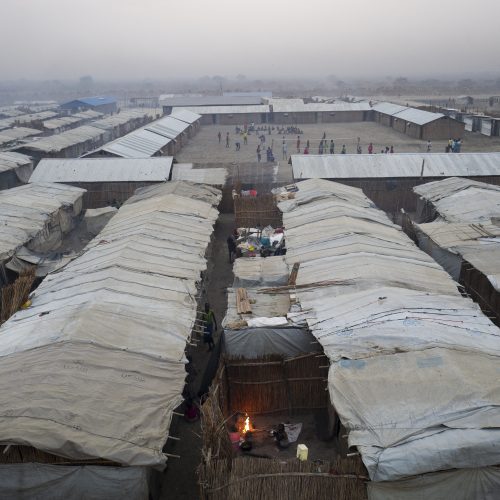
This briefing paper examines changes in social connectedness in the Bentiu Protection of Civilians site and surrounding town.
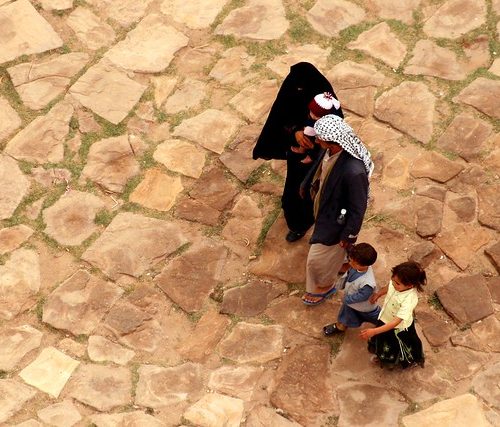
A study of the effectiveness of the Integrated Phase Classification (IPC) system, as it is used to identify famine and levels of food insecurity in Yemen.

A study of the effectiveness of the Integrated Phase Classification (IPC) system, as it is used to identify famine and levels of food insecurity in Yemen.
The humanitarian situation in Somalia is among the world’s most enduring current crises. As a result of conflict and a very weak central state, the country ran for two decades…
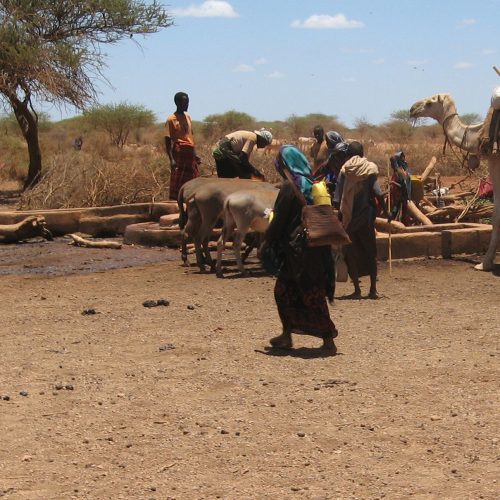
The humanitarian situation in Somalia is among the world’s most enduring current crises. As a result of conflict and a very weak central state, the country ran for two decades…
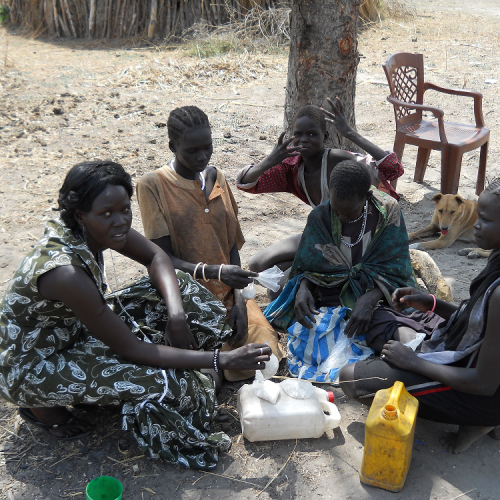
A study of the effectiveness of the Integrated Phase Classification (IPC) system, used to identify famine and levels of food insecurity, in South Sudan.
The briefing paper about a study of the effectiveness of the Integrated Phase Classification (IPC) system, used to identify famine and levels of food insecurity, in South Sudan.
Dans le but d’identifier et de classifier la sévérité de l’insécurité alimentaire, y compris la famine, le Nigeria utilise l’approche du Cadre Harmonisé (CH), un processus analytique semblable au Cadre…
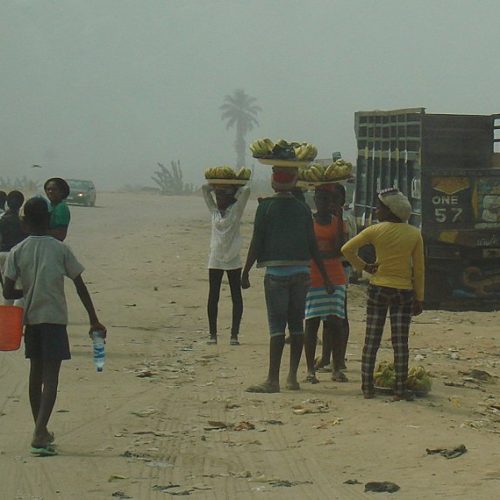
Ce rapport examine le Cadre Harmonisé pour mieux comprendre les contraintes techniques et politiques à l’analyse des famines et des urgences extrêmes.
The humanitarian community has technical definitions of famine and food security or nutrition emergencies: the Integrated Food Security Phase Classification (IPC). The classification requires good quality and coverage of food…

This report examines the Cadre Harmonisé in Nigeria to better understand the technical and political constrains to analyzing famines and extreme emergencies.
This brief examines the Cadre Harmonisé in Nigeria to better understand the technical and political constrains to analyzing famines and extreme emergencies.
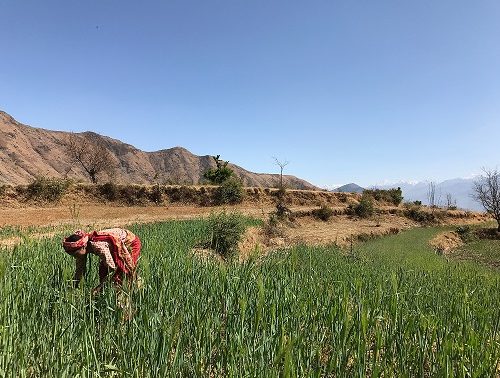
This report investigates food security resilience in Far-Western Nepal.
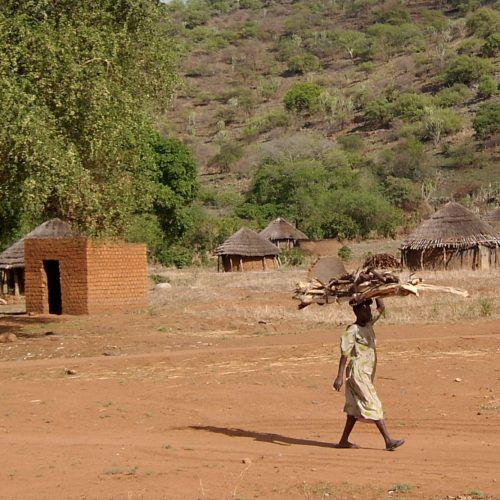
Resilience is defined as the ability of people to mitigate, weather, and “bounce back” from shocks or adversity. This definition is framed in terms of understanding capacities and risk—often particularly…

This is a briefing paper of the full report. Resilience is defined as the ability of people to mitigate, weather, and “bounce back” from shocks or adversity. This definition is…
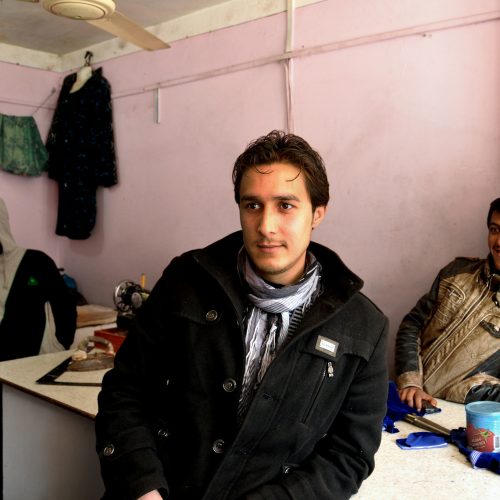
This report synthesizes findings on livelihoods from research projects that took place over five years in eight countries affected by fragility and conflict as part of the Secure Livelihoods Research Consortium (SLRC).
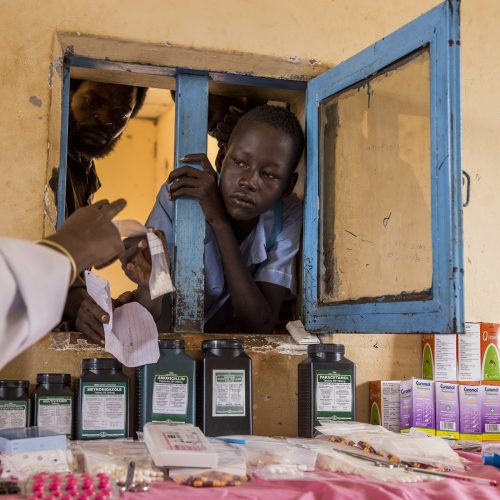
This report uses South Sudan as an example to interrogate people’s perceptions of the state, asking what – if not service delivery – fosters state legitimacy.
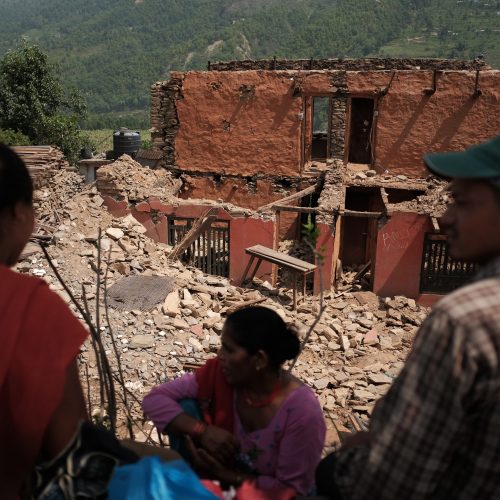
This is an evidence brief, accompanying the full systematic review on shelter in humanitarian settings.

What effects do humanitarian interventions that support affected populations’ own shelter self-recovery processes have on household-level outcomes following a crisis? And what factors have helped or hindered the implementation of such interventions? This evidence synthesis represents the first ever attempt to systematically review the existing evidence for an answer.

Does the humanitarian system have the capacity and vision to respond effectively to the crises of today, tomorrow, and deep into the future? This report analyses the failings of the…
This paper explains that aid actors in South Sudan have largely failed because they applied technical solutions to political problems.
This briefing paper recommends a rethink in the way that aid actors approach questions of recovery and livelihood. Rather than a simplistic either/ or approach, what is needed is a much more localized and deeper analysis of conflict, inter-communal grievances and inter-communal relations.
This paper describes the findings from research carried out in several areas of South Sudan in the context of armed conflict and raiding. The findings show that despite state-building efforts, service delivery remained inadequate in remote areas and that the interface between service delivery and people’s perceptions of the state is complex.
What can international aid policymakers and practitioners learn from the history of international engagement with South Sudan prior to and during the current conflict? This paper traces international engagement shifts…

This protocol details the methodology for an evidence synthesis on shelter in humanitarian crises. The evidence synthesis asks: “What is the evidence on the effectiveness and efficiency of interventions that…
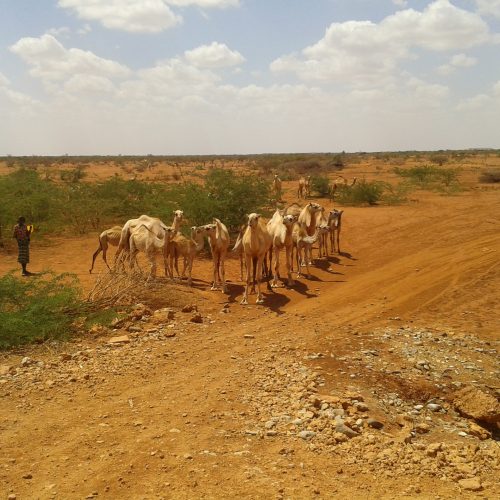
This paper is important reading for anyone working in or on Somalia because it presents the Somalian famine of 2011 from the perspective of those who lived through it in…
FEINSTEIN RESEARCH PROJECTS
This project includes studies on early warning and assessment of crises, specifically looking at real-time monitoring, anticipatory action, political constraints, data collection and analysis, and the validity of indicators.
This project aims to improve the lives and livelihoods of populations in pastoral areas of the Sudano-Sahel and Greater Horn of Africa by ensuring that early warning systems and humanitarian action are better attuned and more responsive to the needs and realities of these communities.
This project reconsiders our understanding of famines, the dynamics that give rise to famines, the resilience of populations subjected to these dynamics, and the means of prevention at the disposal of governments, humanitarian agencies, donors, and the affected populations.
This research program seeks to understand the enabling and hindering factors that support localized or locally led humanitarian responses to natural disasters, conflicts, and prolonged complex emergencies.
This page brings together multiple projects related to gender, sex, and age in humanitarian response.
The Academic Alliance for Anticipatory Action (4As) is a global consortium of universities supported by USAID that is building the evidence base on why acting ahead of hazards and risks saves lives.
This project is harnessing the power of interdisciplinary teams and community participation to co-create solutions that will guide better tailored responses to food crises.
This study seeks to understand the availability and quality of information, and the external influences on data collection and analysis for the classification of food emergencies.
In this partnership with Mercy Corps, the Feinstein International Center team investigates the nature of social networks and social connectedness, and explores how humanitarian assistance can strengthen these as a key aspect of resilience, recovery and relief interventions in complex humanitarian emergencies.
The Secure Livelihoods Research Consortium aims to generate a stronger evidence base on how people in conflict-affected situations make a living, access basic services like health care, education and water, and perceive and engage with governance at local and national levels.
From 2005 to 2017, we developed a wide-ranging research portfolio on livelihoods systems under stress throughout the Greater Horn of Africa and beyond. This project synthesizes key themes of that research.
The Humanitarian Evidence Program produces a series of evidence syntheses to distill humanitarian evidence and communicate it to key stakeholders in order to enable better decision-making and improve humanitarian policy and practice.
The Planning From the Future project aims to influence the direction of ‘non-traditional’ and traditional humanitarian actors to help them deal with a rapidly changing and potentially increasingly vulnerable world.
This project is a major retrospective study of the 2010-2011 Somalia famine. It considers the reasons for the delayed international response, the engagement of non-western humanitarian actors, and the agency and actions of affected communities and groups in protecting their own livelihoods and lives. The project also develops interventions to build resilience in the famine-affected areas.
This USAID-funded five-year project (2014-2019) aims to improve food security, resilience, and livelihoods for poor and marginalized communities in select areas of rural Nepal.
Under this project, a variety of food security indicators are incorporated into field surveys of other studies in order to assess their applicability, cost, reliability, and internal, external, and construct validity.
The Feinstein study on Targeting in Complex Emergencies led the WFP to rethink the way in which it involves recipient communities in the management and targeting of assistance in conflict and complex emergencies.
This study documents existing practices and gaps, and builds the evidence base, for community-based targeting practices in complex emergencies. Program guidance materials were developed for WFP on the basis of the findings.
The ultimate goal of The Assessment Capacities Project (ACAPS) is more effective, efficient, and appropriate humanitarian responses to crises. The aim is to achieve this by promoting better-informed and more evidence-driven responses, specifically by supporting a process of coordinated needs assessment which is timely, coherent, and appropriate to context, with results that are accessible and relevant to decision makers.
The overarching objective of the proposed research is to enhance the understanding of how livelihoods change in response to stress and crisis, and to improve humanitarian practice in responding to disaster and improving livelihoods.
This study was intended to compile the evidence base for improved practices by humanitarian agencies to mitigate the risk of corruption in humanitarian assistance. Case studies were conducted in seven disaster zones.
